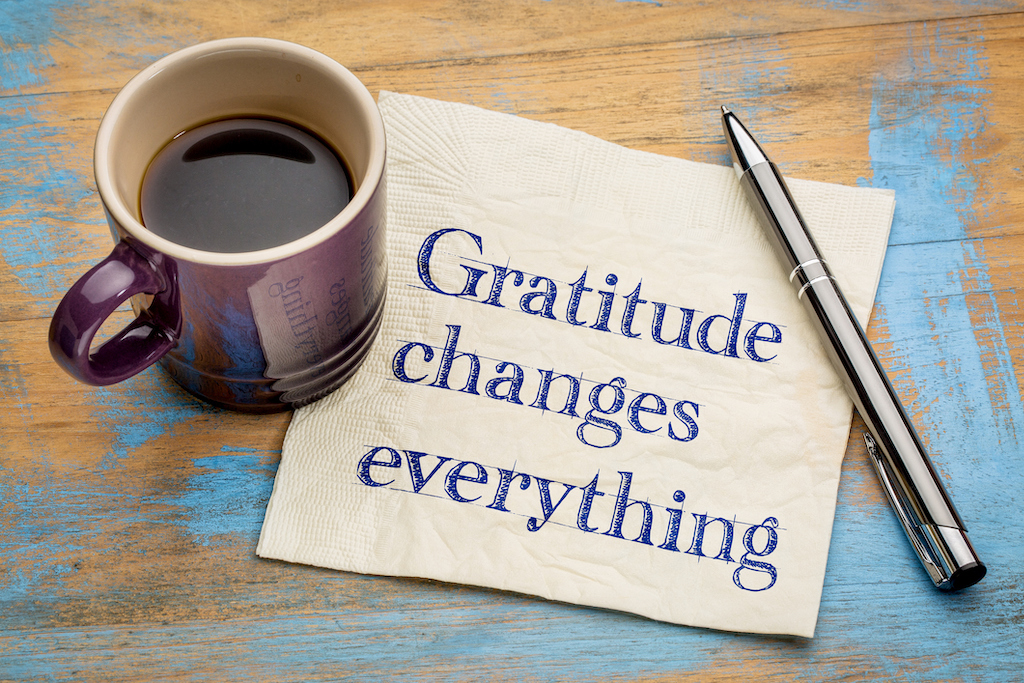Overcoming Depression: A Journey to Healing
Depression is a serious and common mental health problem that affects millions of Americans. In the US alone, about a third of adults experience depression, based on a Census Survey cited by Kaiser Family Foundation.
Yet, many people do not seek help or treatment due to the stigma and shame that surround mental illness. This can make them feel isolated and hopeless.
However, you do not have to suffer in silence. Depression can be treated and overcome with appropriate support and strategies. You are not alone in this journey. Many people have faced depression and recovered from it. You can learn from their experiences and find your own way to heal and thrive.
What is depression?
The American Psychiatric Association (APA) defines depression as “a common and serious medical illness that negatively affects how you feel, the way you think and how you act.” And according to the APA, some of the signs of depression include:
- feeling really sad or down most of the time
- not finding joy in things you used to used
- changes in how much you eat or sleep
- feeling worthless or guilty about things
- loss of interest or pleasure in things you used to enjoy
- having trouble focusing or paying attention
- thinking about death or wanting to end your life
Everyone diagnosed with depression do not experience all of these symptoms.
My journey through depression
Shortly before the first Persian Gulf War began, I took a trip to Pakistan to visit my then-fiancé. During my journey back, I felt disoriented and weak but kept it to myself. Upon arriving at JFK, customs officials singled me out, likely due to my unexpected visit to Islamabad. They requested that I lift my heavy suitcase for inspection, and I couldn’t hold back tears. I had exerted all my strength to retrieve my bags from the baggage claim conveyor belt and I felt like I was going to collapse.
Back home, I found myself emotionally numb, unable to even muster a laugh while watching my favorite show, Seinfeld. It felt as though I were trapped in a dark abyss—a bottomless pit— and I couldn’t get out. My attempt to return to work was futile.
I struggled through just half a day of work, feeling like everything was spiraling out of control. The tears wouldn’t stop, and my ability to concentrate was nonexistent. It became unbearable. As soon as lunchtime arrived, I made a beeline for the exit and called in sick for the rest of the day. I vaguely remembered my boss mentioning something about “AWOL,” but at that moment, it didn’t matter anymore. Depression had stripped away my ability to perform my job.
My path to recovery took several months and involved doctors, medication, exercise, and my faith. Despite encountering misguided advice linking depression to demon possession, I found invaluable support from a pastor and his wife, who became true friends. With the guidance of a psychiatrist, I eventually found the right antidepressant.
At first, I struggled to pinpoint the cause of my depression, especially given that I was supposedly in the happiest phase of my life, preparing for a wedding just five months away. However, I quickly realized it was also one of the most stressful times I’ve ever experienced. I was managing a full-time job, a part-time job, and night classes in between. Plus, I was carrying some unresolved PTSD from a home invasion.
Depression affects more than 20 million Americans, yet many remain hesitant to seek help. I share my journey in the hope of inspiring others to prioritize their mental health and seek professional assistance without fearing judgment. Mental health holds the same importance as physical health, and there are professionals like family doctors and mental health professionals ready to offer support.
Below I’ve listed a few of the strategies that aided my path to healing; others listed were added over time.
7 Tips to Help You Cope with Depression
1. Seek Professional Help
If you find yourself struggling with depression, you should reach out to your family doctor first. They can provide good guidance and refer you to a mental health professional such as a psychiatrist, psychologist or counselor.
It’s worth noting that our healthcare system is broken, so you may not always get the immediate assistance you expect. It’s not uncommon to have to wait for a couple of month just to see your primary care doctor.
If you find yourself in that situation, you may want to take action into your own hands and reach out directly to a psychiatrist, psychologist, or qualified therapist who can help. These mental health professionals are extensively trained in different techniques that could aid our recovery. In some cases, they recommend medication.
Personally, seeking talk therapy was a game-changer for me. I instantly found a compassionate ally and a reliable support system that made a world of difference in my journey to overcome depression. You can find a healthcare provider or treatment here.
2. Get Regular Exercise
Regular exercise is akin to an elixir for the mind. Even modest physical activity, such as taking a short walk, can help clear your mind and elevate your mood. No need for marathon endeavors; simply keep your body in motion. Exercise should be an essential part of your recovery from depression.
If you live in a city where you deal with extreme weather conditions, and who doesn’t, try working out at home when you can’t go outside. Set your timer for 15 or 30 minutes and start walking around your apartment. You could also work out to one of the millions of exercise videos on YouTube. One of my favorite is from the Body Project, led by an Aussie personal trainer (love the accent!).
3. Seek out a supportive community
It is important to seek out people who can help you feel a sense of belonging, whether they are family members, close friends, or even a group like a book club. Those connections serve as an invaluable personal support system, regardless of whether you are currently grappling with depression or not.
In fact, maintaining strong bonds with supportive friends and family can ward off feelings of loneliness and isolation. The US Surgeon General’s reports have highlighted the loneliness epidemic in the country, with a staggering 50% of adults experiencing measurable levels of loneliness. Alarmingly, adults who consistently feel lonely are more than twice as likely to develop depression compared to those who rarely or never experience such feelings.
When facing depression, reaching out for support can be incredibly challenging. However, the positive impact these connections can have on your recovery is worth the discomfort. I vividly recall a moment during my own struggle with depression when the wife of a church leader visited me. Despite her poised appearance (which made me assume she had it all together), she shared that she had experienced severe depression years earlier. Her openness gave me hope for healing on my own journey and we quickly became friends.
Here’s my advice: Stay open to forming new friendships because you never know when an angel might enter your life. Remember, you don’t have to face depression by yourself.
4. Practice Self-Care
If you are already predisposed to depression due to genetics or other personal factors, you may be more at risk for developing depression when stress enters the equation. Self-care can help lower stress levels. For instance, something as simple as deep breathing exercises can calm your nerves and reduce the tension that stress brings.
Self-care means taking actions to take care of your body and mind. It includes things like exercising, eating healthy, and sleeping well. It’s important to find activities that make you happy and help you feel calm, like reading or spending time on hobbies.
Connecting with loved ones and participating in social events is crucial too. Meet up with a friend for coffee or dinner, and engage in activities that stimulate your mind (e.g., puzzles, writing, or meditation).
Remember, you should also to set boundaries to manage stress. For example, you can say no to requests or invitations that you don’t want to do, or that interfere with your priorities or plans. Or it might mean limiting the amount of contact or communication that you have with someone who is toxic or abusive.
Here are two apps could help you on your self-care journey: Headspace (paid) and Insight (free).
5. Find strength in faith
In the journey to combat depression, embracing faith practices can be a powerful source of solace and strength. Whether it’s through prayer, meditation, attending religious services, or simply finding comfort in your spiritual beliefs, faith can provide a sense of purpose and hope.
It reminds us that we are never alone in our struggles and that there is a higher power guiding us through difficult times. While faith alone may not be a substitute for professional help, it can complement treatments and offer the strength you need on the path toward recovery.
While I no longer struggle with depression, I still embrace some of the practices I had used during those bouts. There are obviously a lot more apps than back then. Before I get out of bed, on most days, I click on one of my favorite faith-based apps, YouVersion Bible. The app offers a Verse of the Day Story that is a video of encouragement from faith practitioners from all over the world. For me, this practice helps me find center and get ready for the day. What’s yours?
6. Give Thanks
When you suffer from depression, you can become preoccupied with negative thoughts – you think you’re never going to get better; you keep thinking your loved ones are going to die, or you are going to die. The worrying is endless.
Harvard Health says, “Gratitude helps people feel more positive emotions, relish good experiences, improve their health, deal with adversity, and build strong relationships.”
Journaling can counteract negative thoughts. This practice involves documenting moments of appreciation, both large and small, which can positively impact your daily outlook. I am a big believer in gratitude journals. While recovering from depression, journaling was vital to keep me from worrying about the future.
If you have never journaled before, starting a gratitude journal while your are suffering depression requires a lot of effort. The fact is, you will not see results right away. However, if you stick with it, you will soon train your brain to think more positively.
7. Mindfulness
Mindfulness meditation can be helpful for dealing with depression. It’s about paying attention on purpose to what’s happening right now, without judging it. It helps us become more aware of our thoughts, feelings, and the sensations in our bodies.
By practicing mindfulness, we can learn to control our emotions better, reduce stress, and change negative thoughts that can make us feel depressed. It’s a way to keep our thoughts from controlling us. This helps you break free from negative thoughts that often come with depression.
One of my favorite go-to apps for mindfulness meditation is Calm. You have to pay to use the app; however, the videos are free to watch on YouTube.
Learn more about mindfulness here. You’ll also find some useful 5-minute breathing meditations and body scans there.
Final Thoughts
In the journey to overcome depression, remember that you are stronger than you think, and seeking help is a sign of resilience, not weakness. By embracing support from professionals, loved ones, and self-care practices, you can navigate the challenges of depression and find your way back to a brighter, more purpose-filled life.
If you or someone you know is suffering with depression, remember, there is hope. Reach out to a helpline (www.samhsa.gov or call 988) or find a healthcare provider or treatment here.
Asking for help is a sign of strength and can lead you towards a brighter future.



